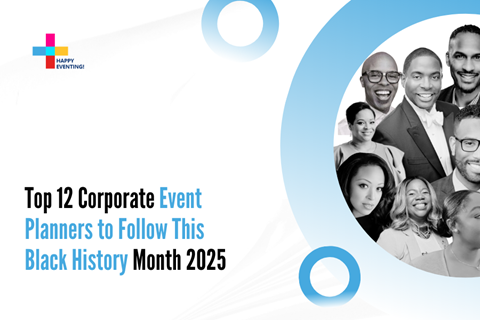

Numerous elements contribute to the success of a conference, with venue standing out as a crucial factor influencing attendee experience and overall event success. In a previous blog, we explored the specific venue requirements for conferences. In this one, we'll take a deep dive into the process of selecting the ideal venues for conferences. From understanding location preferences to evaluating technical infrastructure and budget constraints, choosing the right venue involves a comprehensive assessment of various factors.
Let's explore actionable steps for finding the perfect location for your next conference.
What Constitutes a Conference Venue?
Conference venues encompass large, expansive spaces that offer a higher level of service compared to venues for smaller events. Examples include business centers, hotels, corporate headquarters or offices with meeting spaces, and dedicated conference centers. Each venue type offers unique amenities and ambiance tailored to different conference needs and preferences.
Factors to Consider When Choosing Venues for Conferences
Beyond fundamental parameters like budget, location, contracts, and staff-to-attendee ratio, several other considerations factor into selecting a suitable venue.
1. Staffing Ratio
Whether hosting a small or large conference, determining the necessary number of team members is crucial for delivering an excellent attendee experience. Check if the venue has adequate staff to manage the entire conference smoothly and whether you need additional staff. If your internal team members are present at the venue, the need for additional staff diminishes.
It's also essential to find a conference venue that employs highly competent staff capable of meeting the expectations of corporate conference attendees. Staffing requirements may vary based on factors such as event duration, arrival window, and the nature of the target audience.
2. Security Measures
Effective event security is vital for preventing damage, managing crowds, and ensuring a safe environment. Choose a corporate conference venue equipped with sufficient security personnel at all entry points, along with robust access control measures such as credential management systems and guest screening procedures.
Additionally, opt for a venue staffed with professionals proficient in monitoring and surveillance techniques to mitigate event threats and maintain attendee safety.
3. Vendor Access Points
Select venues for conferences that provide designated entry points for vendors to facilitate efficient logistics and uninterrupted setup operations. Proper vendor entry points not only contribute to the professionalism of the conference but also enable vendors to deliver their services effectively, leaving a positive impression on attendees.
By carefully considering these factors and conducting thorough assessments, you can confidently select a conference venue that meets your event's unique requirements and contributes to its success.
4. Insurance Needs
When hosting a conference, it's essential to anticipate potential mishaps. Accidents resulting in guest injuries or property damage caused by vendors can occur unexpectedly. Therefore, insurance coverage is paramount for effectively managing risks, especially for conferences with significant financial stakes. Many vendors do not offer refunds for delays or cancellations, making insurance coverage essential for financial security. Additionally, your chosen venue may stipulate the purchase of liability coverage to address potential property damage or injuries.
Obtaining conference insurance, a type of special event insurance, is crucial for safeguarding organizers against financial liabilities. This insurance covers costs arising from third-party injuries and property damage during the conference. It provides protection against financial repercussions stemming from third-party property damage, bodily harm, liquor liability-related property damage, and allegations of personal or advertising injury, such as slander against a company.
However, before investing in conference insurance, it's advisable to inquire about vendors' liability insurance coverage to avoid over-insuring the conference.
5. Proximity to Local Transport & Parking
No one enjoys spending hours scouring for a venue. When selecting venues for conferences, prioritize those centrally located with ample parking or easy access to public transportation to enhance attendee convenience. Proximity to parking facilities significantly improves the overall attendee experience, eliminating the hassle of finding parking and potential deterrents to attendance.
When evaluating potential venues, inquire about parking availability on-site or nearby.
6. Integration of Technology
Another critical aspect to consider when assessing conference venues is technology integration. Ideal conference rooms should include video conferencing platforms, speaker systems, microphones, and high-quality cameras. Additionally, find a conference venue with skilled technical staff proficient in sound setup and troubleshooting to ensure seamless operations.
Failure to meet technological needs can hinder collaboration participants and impede effective communication and engagement.
7. Signage and Branding Opportunities
On-site branding opportunities serve to promote your brand and spark conversations, conveying your brand's vision and identity. Verify if the venue offers branding opportunities, such as signage in elevators or advertisements on plasma screens. Maximize branding exposure by incorporating custom-branded slides for speakers and prominently displaying the brand logo or name on lecterns.
8. Consider the Venue Ambiance
Ambiance significantly influences the success of a conference, necessitating a comfortable, stimulating, and creative environment. Optimal ambiance encompasses suitable colors, textures, seating arrangements, and amenities. Features like whiteboards, flipcharts, and coffee stations contribute to a conducive atmosphere, while elements like abstract art, indoor plants, and ample natural light enhance attendee comfort and engagement.
Conclusion
With attention to these details, you can identify a conference venue that delivers an exceptional experience and desired outcomes. While there’s no dearth of conference venues and convention centers, these guidelines will help streamline the decision-making process. Armed with these insights, you can confidently select the ideal venue for your event.
Connect with Eventcombo today to select and manage your conference venues effectively using our venue and facilities management software. https://bit.ly/498PjBV

Networking is one of the most valuable ways to discover boundless opportunities and for 77.7% of business professionals , in-person conferences open a greater scope to make rewarding connections.

When planning a healthcare fair, the goal goes beyond booking a venue and sending out invites. You’re creating an event that brings together healthcare professionals, researchers, and exhibitors, all seeking value and...

Diversity and inclusion are at the heart of the events industry, where planners are focused on creating experiences that bring together people from all walks of life.